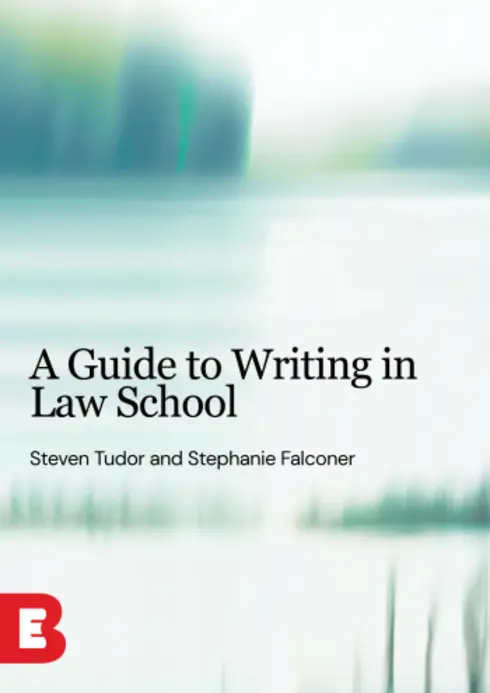
A Guide to Writing in Law School
No ratings
Steven Tudor, La Trobe University
Stephanie Falconer, La Trobe University
Copyright Year:
Last Update: 2025
Publisher: Council of Australian University Librarians
Language: English
Formats Available
Conditions of Use
![]() Attribution-NonCommercial-ShareAlike
Attribution-NonCommercial-ShareAlike
CC BY-NC-SA
Table of Contents
- Introduction
- Chapter 1: What you need to know before you start writing
- Chapter 2: Planning your document
- Chapter 3: Writing your document
- Chapter 4: Acknowledging your sources
- Chapter 5: Case briefs
- Chapter 6: Legal problem-solving
- Chapter 7: Essays
- Chapter 8: Law reform submissions
- Further reading
About the Book
A Guide to Writing in Law School is intended to help law students to develop their writing skills. Writing clearly and effectively is a vital legal skill. Lawyers use this skill daily. Law graduates need, therefore, to have a solid competency in clear and effective writing. This book aims to help students improve their writing by presenting various pieces of advice, tips, warnings and encouragement. It contains general chapters on planning, clear writing, and acknowledging your sources, as well as dedicated chapters on some of the specific writing tasks that law students undertake: case briefs, legal problem-solving, essays, and law reform submissions. With effort and practice, virtually everyone can improve their writing. A Guide to Writing in Law School is not only for students having particular difficulties. Those who already write well will find ideas here that will help them become even better writers.
About the Contributors
Authors
Steven Tudor is a senior lecturer in the Law School at La Trobe University, Australia. He has also worked as a barrister, judge’s associate, legal researcher for the Victorian Court of Appeal, and as a public servant for the Victorian state government, specialising in criminal law policy and reform issues. His PhD was in philosophy and his research interests mostly concern the philosophical aspects of criminal law, especially issues relating to emotions and conscience. His publications include Compassion and Remorse: Acknowledging the Suffering Other (2001), Remorse: Psychological and Jurisprudential Perspectives (2010) (co-authored with Michael Proeve), Remorse and Criminal Justice: Multidisciplinary Perspectives (Routledge: London, 2021) (co-edited with Richard Weisman, Michael Proeve and Kate Rossmanith), Criminal Investigation and Procedure: The Law in Victoria, 1st ed.(Sydney: Thomson Reuters, 2009) (co-authored with Christopher Corns), and Waller and Williams Criminal Law Text and Cases 14th ed (LexisNexis: Sydney, 2020) (co-authored with Penny Crofts, Thomas Crofts, Stephen Gray, Tyrone Kirchengast and Bronwyn Naylor), as well as various articles in academic journals.
Stephanie Falconer is a part-time associate lecturer at La Trobe University Law School. She has taught across a variety of subjects within the law school since 2016. As a result of Stephanie’s extensive experience teaching, she has developed a sound understanding what students find most stressful about legal writing, and a keen desire to help students develop this essential skill as they progress through their degree. This understanding informs Stephanie’s approach to teaching, which adopts a predominantly skills-focused pedagogy.
